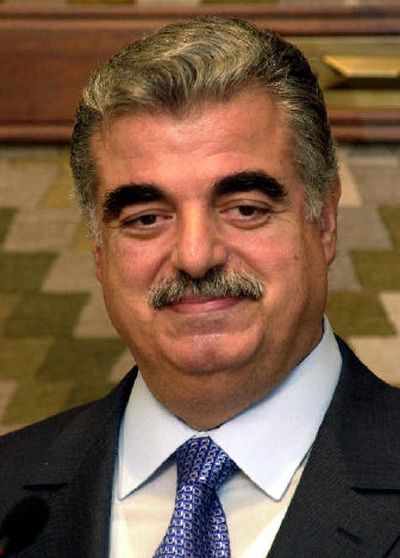Truck bomb likely caused Hariri’s death

BEIRUT, Lebanon – U.N. investigators said Friday a truck bomb probably was used to kill former Prime Minister Rafik Hariri, but they are not sure if the bomber died.
“We are talking here about a probability of 99.9 percent” that the explosion was above ground, chief U.N. investigator Detlev Mehlis told reporters in the first disclosures of the team’s work since it arrived in Beirut in May.
Hariri and 20 others were killed when a blast blew up his motorcade as it passed through central Beirut on Feb. 14.
Some anti-Syrian Lebanese have speculated the explosives used in the bombing were buried under the street – an act that would suggest the complicity of pro-Damascus officials, since digging up the street would draw attention and require permits.
But Mehlis said Swiss and German experts who examined the scene of the blast have established “without any reasonable doubt” that the detonation was above ground.
The assassination triggered protests that brought down the pro-Syrian Lebanese government two weeks later and increased international pressure on Syria to withdraw its troops from Lebanon, which Damascus did in late April.
Mehlis’ comments came just two days before the final and crucial round of Lebanon’s parliamentary elections, a heated race in which the anti-Syrian opposition is hoping to wrest control of parliament from pro-Syrian legislators.
In the campaign, opposition leaders, including Hariri’s son, Saad, have touted the assassination as an example of the need to vote against pro-Syrian candidates. The opposition has accused Syria and its allies in the Lebanese security services of killing Hariri, a charge they denied.
The opposition needs to win 21 of the 28 seats Sunday in north Lebanon to win a majority in the legislature.
Mehlis said he would question Lebanese and Syrian officials if necessary. His remarks were used in the campaign. Opposition leader Elias Atallah said Mehlis’ comment “will make the hearts and knees of many people tremble, because his investigation will include those who executed and planned (the crime), wherever they are, inside or outside Lebanon.”